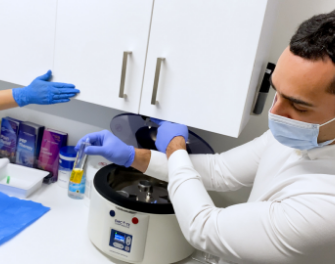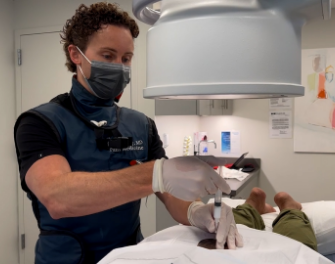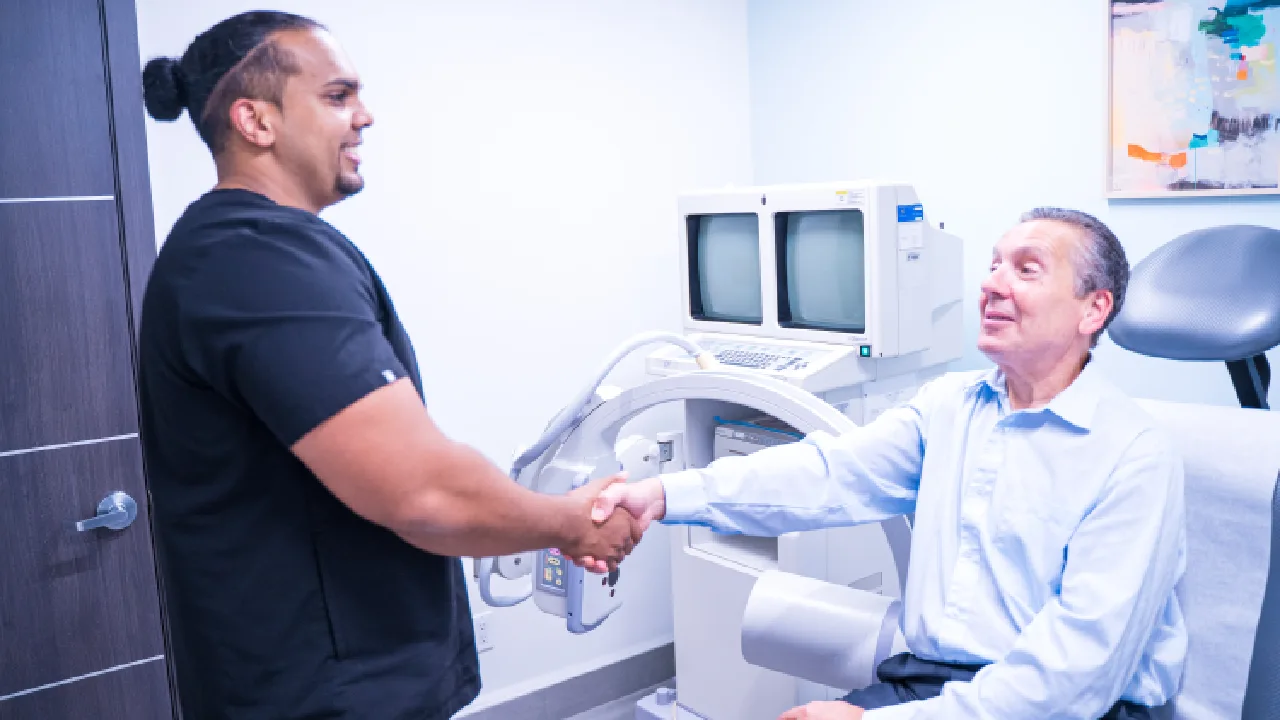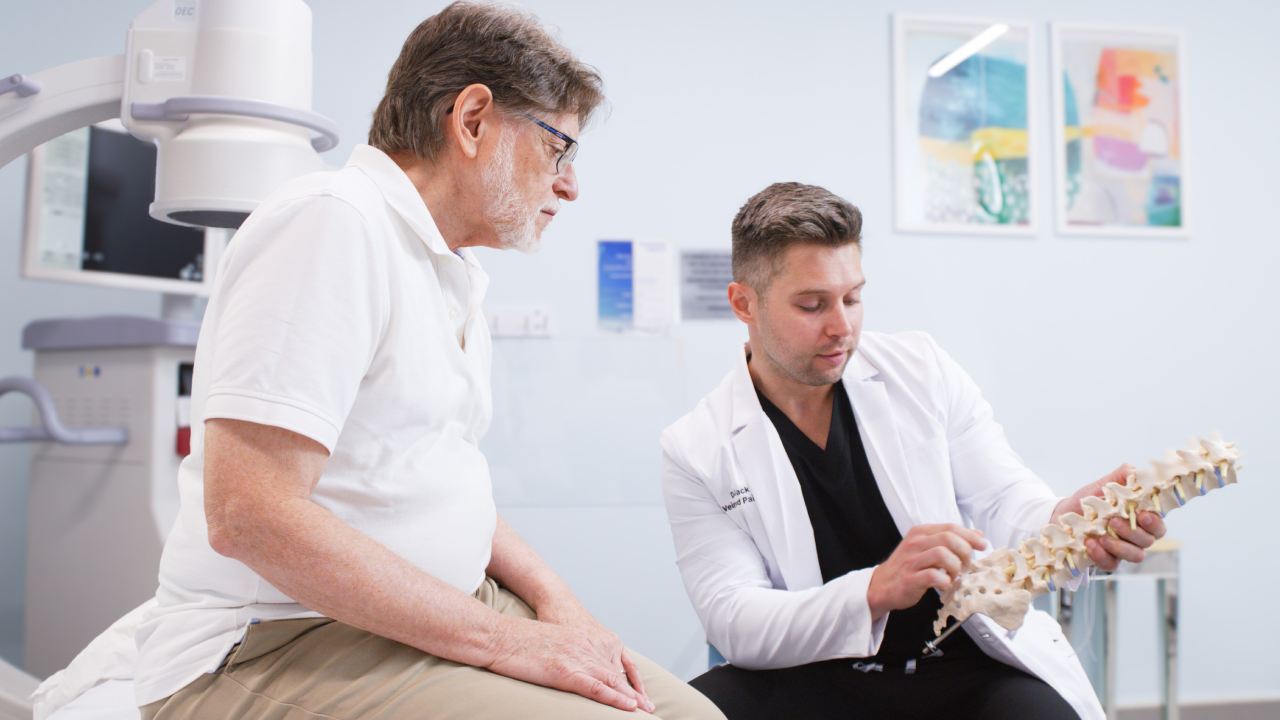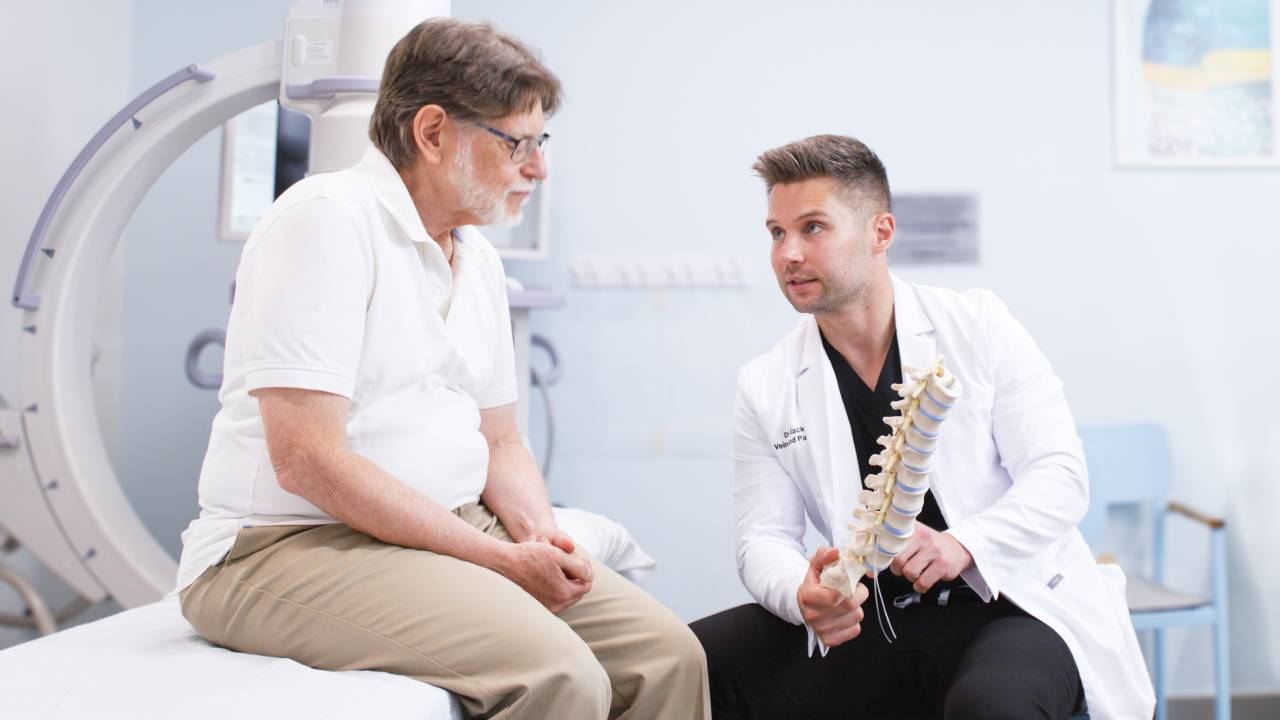
The Role of Personalized Medicine in Pain Treatment
As the field of medicine continues to advance, personalized treatment approaches are gaining increasing recognition for their efficacy in addressing health concerns. At Pain Treatment Specialists, we are committed to providing comprehensive care that acknowledges the diverse factors contributing to each patient’s experience of pain. Our board-certified pain doctors always diagnose the root cause of each patient’s pain to curate personalized treatment plans that alleviate symptoms and help them lead pain-free lives. In this article, we explore the role of personalized medicine in pain treatment.
Are you interested in get more information about your condition or get a treatment?
Fill the form below to start!
What Is Personalized Medicine?
Personalized medicine, also known as precision medicine, revolves around the idea that medical care should be tailored to the individual characteristics of each patient. Rather than adopting a one-size-fits-all approach, personalized medicine takes into account factors such as genetics, lifestyle, environmental influences, and personal preferences to design targeted interventions that are most likely to be effective.
The Evolution of Pain Management
Historically, pain management has been approached from a standardized perspective, with treatments prescribed based on the type or severity of the pain rather than the attributes of the individual experiencing it. However, this approach fails to acknowledge the complex interplay of biological, psychological, and social factors that contribute to an individual’s experience of pain. Personalized medicine moves beyond this one-dimensional approach to pain management and addresses the multifaceted nature of pain more comprehensively.
Factors That Affect Individual Experiences of Pain
1. Biological Factors:
- Genetics and hereditary predispositions: Genetic variations can influence how individuals perceive and respond to pain. Some people may have genetic predispositions that make them more or less sensitive to pain or affect their response to pain medications.
- Neurochemical imbalances: Imbalances in neurotransmitters and other chemicals in the nervous system can impact pain processing and perception. For example, disruptions in serotonin or dopamine levels may affect mood and pain sensitivity.
- Neurological conditions or injuries: Conditions such as neuropathy, fibromyalgia, or spinal cord injuries can affect the nervous system’s ability to transmit and interpret pain signals.
- Inflammation and tissue damage: Inflammatory processes and tissue damage can contribute to the intensity and duration of pain experienced by an individual. Conditions such as arthritis or injuries can lead to chronic pain due to inflammation or structural damage.
2. Psychological Factors:
- Stress, anxiety, and depression: Psychological factors can influence pain perception by modulating the brain’s response to pain signals. Stress, anxiety, and depression can exacerbate pain symptoms and make them more difficult to manage.
- Coping mechanisms and resilience: Individual coping strategies can affect how people manage pain and adapt to its impact on their daily lives. Effective coping mechanisms, such as problem-solving skills or social support, can help individuals better manage pain.
- Past experiences with pain: Previous experiences with pain, including childhood experiences or traumatic injuries, can shape an individual’s responses to pain.
- Cognitive biases and perceptions of control: Cognitive factors, such as perceived control over pain or catastrophic thinking, can influence pain perception and coping behaviors. Beliefs about one’s ability to control pain or the inevitability of suffering can impact pain outcomes.
3. Social Factors:
- Social support networks: The presence of supportive relationships with family, friends, or healthcare providers can buffer the negative impact of pain and enhance coping abilities.
- Socioeconomic status: Socioeconomic factors, such as income level, education, and access to healthcare resources, can influence an individual’s ability to access effective pain treatment and manage pain-related expenses.
- Cultural beliefs and attitudes towards pain: Cultural norms surrounding pain can shape how individuals express, perceive, and cope with pain. Cultural factors may influence pain communication, treatment-seeking behaviors, and the stigma associated with pain.
- Access to healthcare resources and services: Disparities in healthcare access and quality can impact pain management outcomes. Factors such as geographic location, insurance coverage, and availability of specialized pain care can affect an individual’s ability to receive timely and appropriate treatment for pain.
4. Environmental Factors:
- Physical environment: Environmental factors such as temperature, humidity, noise levels, and lighting conditions can influence pain perception and comfort levels.
- Occupational factors: Work-related activities and ergonomics can contribute to the development or exacerbation of pain conditions, particularly in occupations that involve repetitive movements, heavy lifting, or prolonged periods of sitting or standing.
- Lifestyle factors: Lifestyle choices such as diet, exercise, sleep habits, and substance use can impact pain severity and resilience. Healthy lifestyle behaviors, such as regular physical activity and stress management techniques, can support pain management efforts.
- Exposure to traumatic events or chronic stressors: Traumatic experiences or chronic stress can sensitize the nervous system and contribute to the development or exacerbation of chronic pain conditions. Adverse childhood experiences or ongoing life stressors may increase vulnerability to pain-related distress.
5. Treatment History and Expectations:
- Previous experiences with pain treatments: Past experiences with pain treatments, including both positive and negative outcomes, can shape an individual’s preferences, expectations, and adherence to treatment recommendations.
- Expectations regarding pain relief and treatment: Patient expectations regarding the effectiveness of pain treatments can influence treatment outcomes. Unrealistic expectations or misconceptions about pain management may impact treatment satisfaction.
- Adherence to treatment regimens and recommendations: Adherence to prescribed treatment regimens, including medication, exercise programs, and lifestyle modifications, can significantly impact pain management outcomes.
- Perception of healthcare providers’ empathy: The quality of the patient-provider relationship, including perceptions of empathy, trust, and communication, can influence treatment outcomes and patient satisfaction. Patients who feel supported and understood by their doctors may be more engaged in their treatment and experience better pain relief.
Tailoring Treatment Approaches
One of the key tenets of personalized medicine in pain treatment is the recognition that not all patients will respond to the same interventions in the same way. By conducting thorough assessments and utilizing advanced diagnostic tools, we gain insights into each patient’s pain profile and tailor treatments accordingly. This may involve a combination of pharmacological interventions, interventional procedures, physical therapy, psychological support, and lifestyle modifications, all customized to address the unique needs of the individual.
Regenerative Medicine
Regenerative medicine optimizes the treatment of chronic pain conditions by harnessing the body’s natural healing mechanisms. Therapies such as platelet-rich plasma (PRP) injections, stem cell therapy, and growth factor injections have shown potential in promoting tissue repair, reducing inflammation, and alleviating pain symptoms. By incorporating regenerative medicine approaches into personalized treatment plans, we can offer patients innovative solutions that address the underlying mechanisms of their pain and facilitate long-term healing.
Our Strategies for Personalized Pain Management:
- Conduct thorough medical history reviews and physical examinations to understand each patient’s unique pain profile.
- Utilize advanced diagnostic tools, including imaging studies and laboratory tests, to identify underlying causes and contributing factors to pain.
- Collaborate with a team of specialists, including pain physicians and physical therapists, to develop holistic treatment plans.
- Incorporate genetic testing and analysis to identify genetic predispositions to pain conditions and predict responses to pain medications.
- Conduct comprehensive psychosocial assessments to identify underlying psychological stressors and barriers to effective pain management.
- Offer a range of minimally invasive interventional pain procedures, such as nerve blocks, epidural injections, and radiofrequency ablation, to target specific pain generators.
- Continuously monitor patients’ response to treatment and adjust treatment plans as needed based on their evolving needs and treatment outcomes.
- Provide ongoing support and education to empower patients to self-manage their pain and optimize their quality of life over the long term.
- Educate patients about their pain condition, treatment options, and self-management strategies to enhance their understanding and self-efficacy.
- Provide resources and tools to help patients track their symptoms, medication adherence, and progress toward treatment goals.
Contact Pain Treatment Specialists for Personalized Pain Treatments
Pain Treatment Specialists is a leading provider of personalized pain treatments led by board-certified interventional pain doctors. Our approach prioritizes identifying the root cause of pain to tailor effective, minimally invasive treatment plans.
With offices conveniently located in New York and New Jersey, including Midtown Manhattan, Financial District, Brooklyn, Westchester, Hartsdale, Jericho, Clifton, West Orange, and Woodland Park, accessing our specialized care is convenient for patients across the tri-state area. Whether you’re seeking relief from chronic back pain, neuropathy, or sports injuries, our team is dedicated to providing compassionate, evidence-based care that empowers you to live a fuller, more pain-free life. Contact us today to schedule a consultation.
FEATURED POSTS BY PAIN DOCTORS












